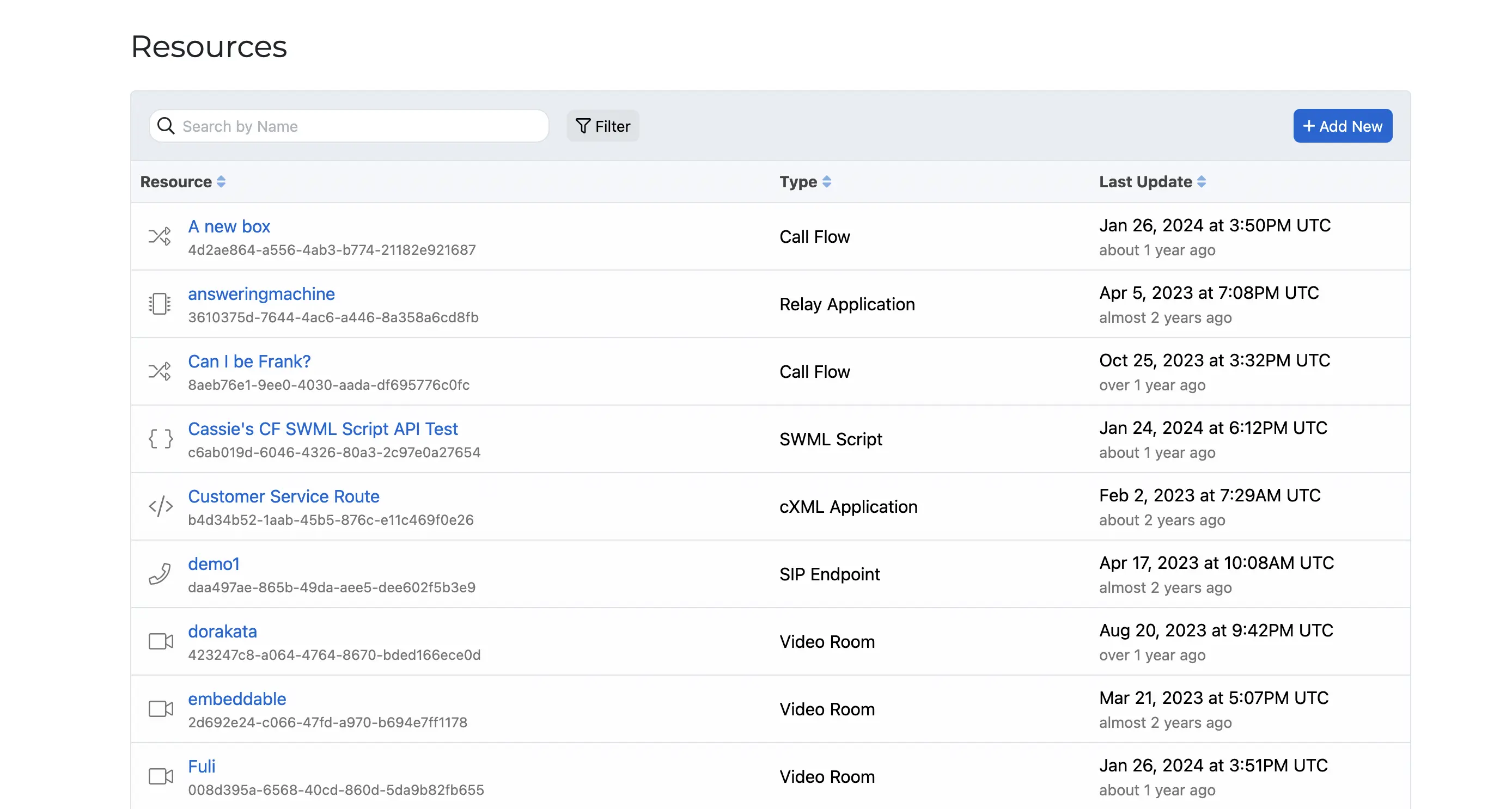SignalWire Reference App
Overview
The SignalWire Reference App demonstrates the kind of products that can built with SignalWire APIs and our Browser SDK. It is also a useful communication tool you can start using as you are developing applications and services on our platform.
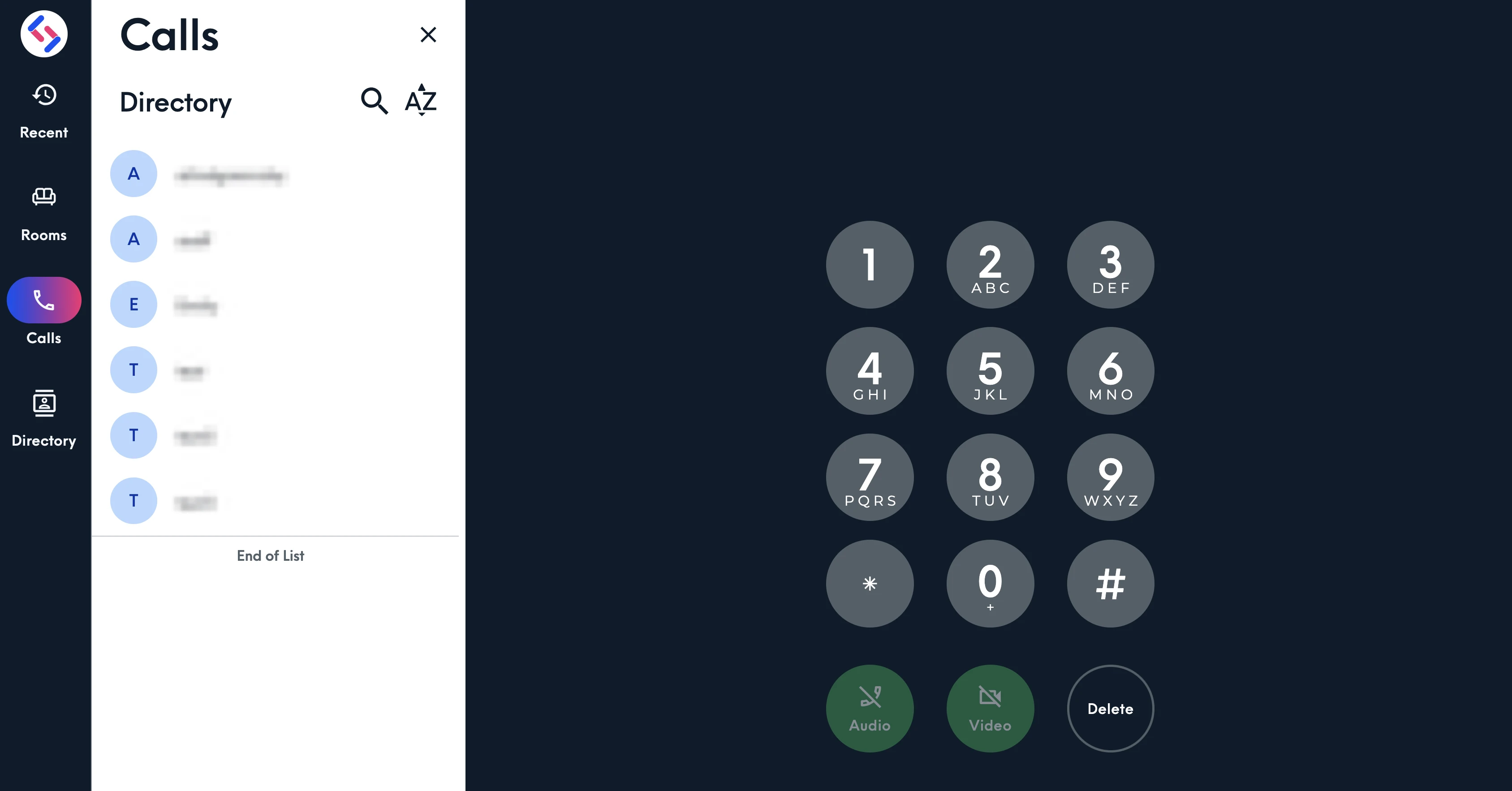
Get started
Follow these steps to initialize and launch the Reference App in your Dashboard:
Open the Resources tab
Find the Resources tab in the main sidebar menu of your Dashboard.

Create and manage all Resources from the SignalWire Dashboard.
Create a Subscriber
Subscribers are registered end users in the SignalWire platform. That means that, in order to log in to the Reference App, your Space must have at least one.
Create a Subscriber by adding it as a new Resource.
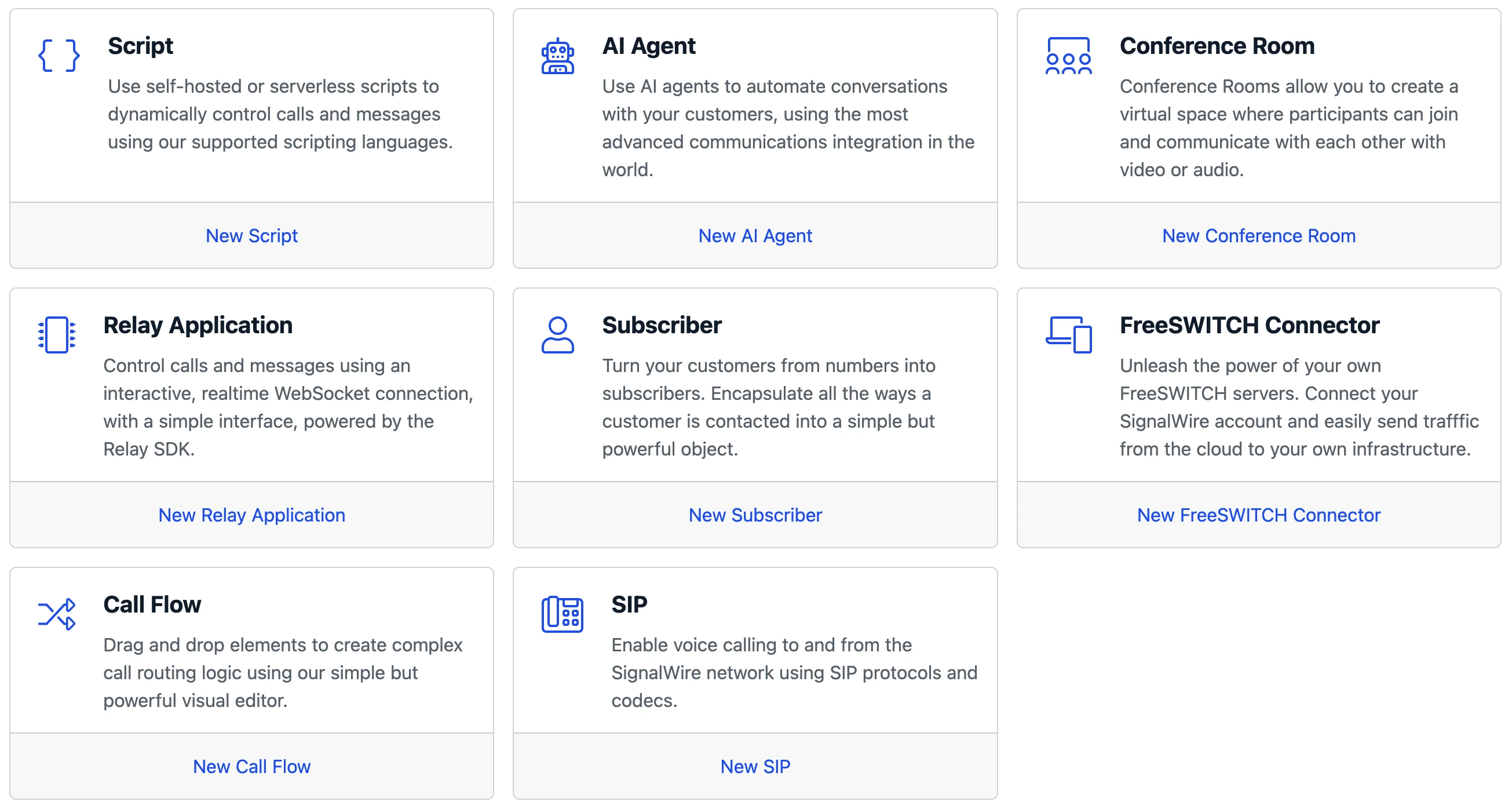
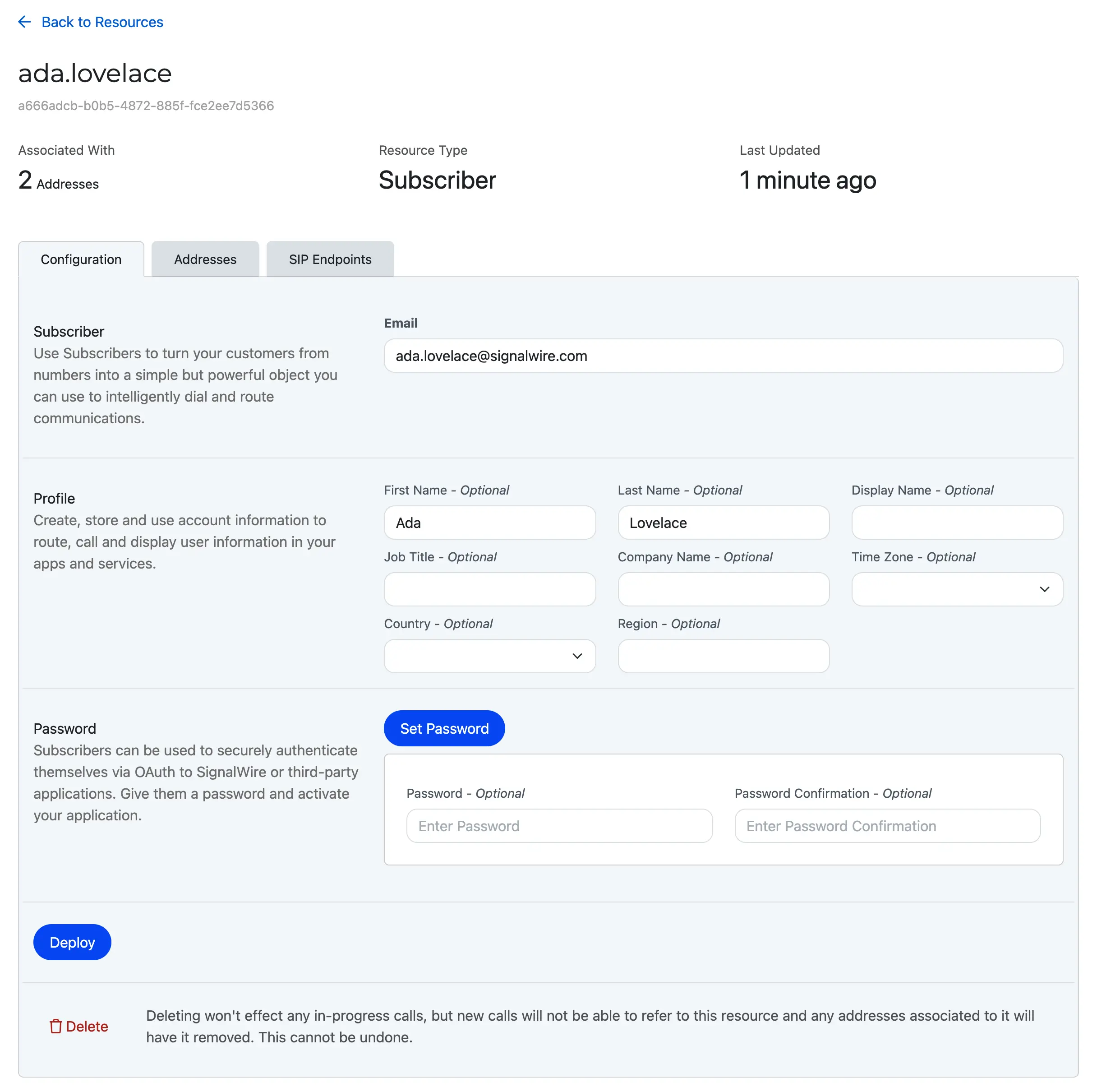
Add a new Resource, select Subscriber, configure, and deploy.
Be sure to save the account credentials for your new Subscriber, as you'll need them to log in.
Navigate to the Home page of the Dashboard
Click the Dashboard tab at the top of the left sidebar.
Click the Marketplace link in the top right of the homepage of the Dashboard.
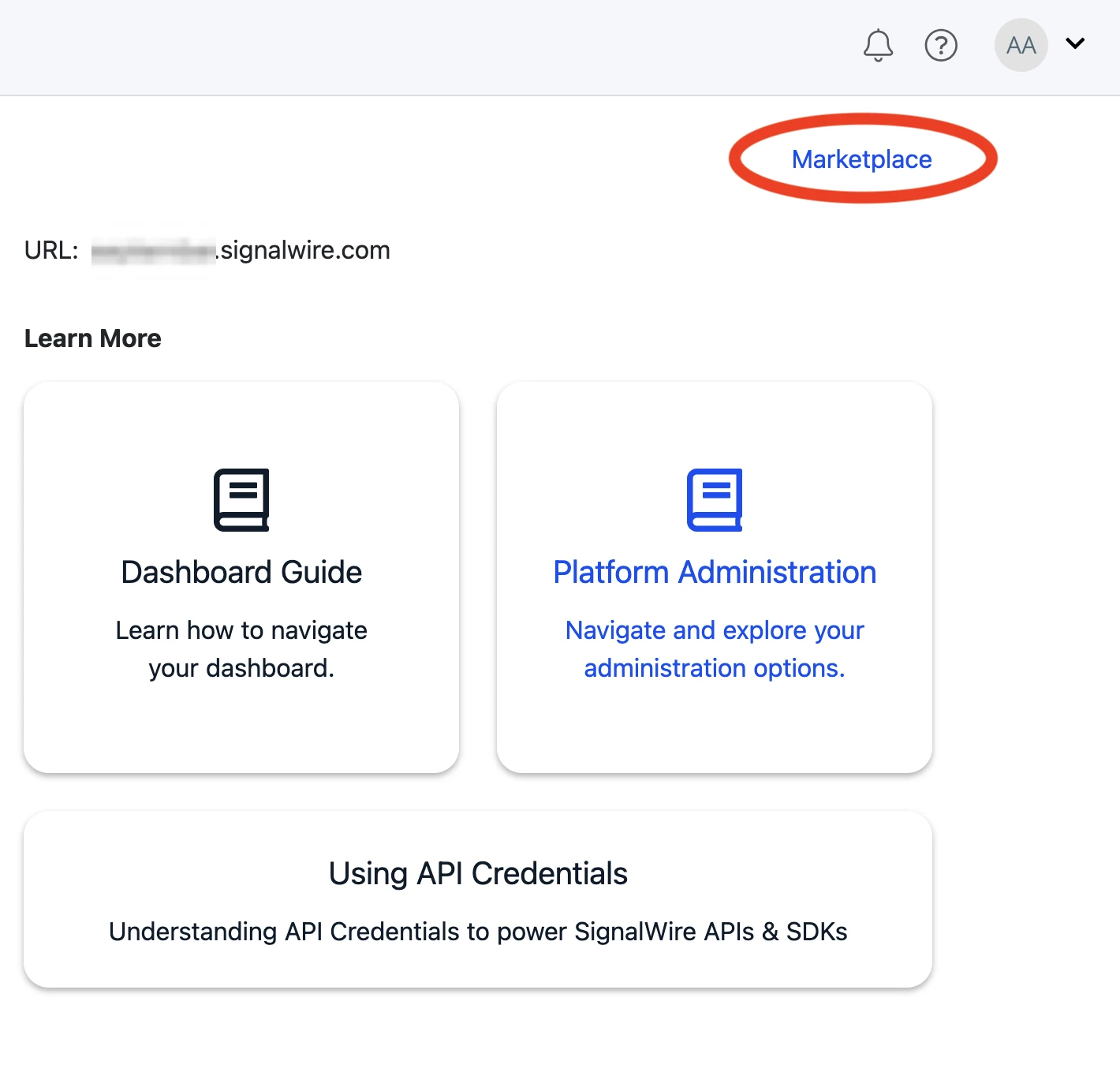
Launch the Reference App
In the resulting menu, under "Reference App", choose Launch.
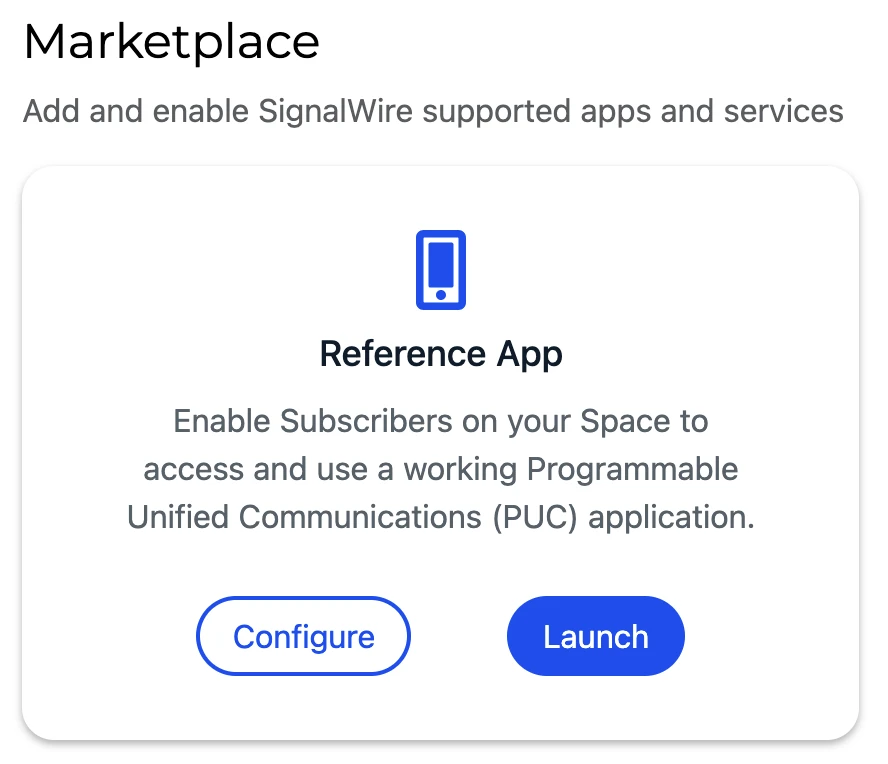
Login with new Subscriber credentials
Log in with the username and password of your newly created Subscriber.
Features
The SignalWire Reference App and Browser SDK showcase Call Fabric APIs and newer concepts and features including:
- Programable Unified Communications building blocks like the Browser SDK itself
- Resources including...
- Subscribers
- Rooms
- Outbound and inbound calling to and from SIP URIs and PSTN numbers and the ability to assign a phone number to a room so outside participants can dial into a meeting
- Scalable and secure onboarding and management of users and accounts using Subscribers
- Audio and video calls using rooms using HD audio and video codecs including Opus, VP8 and H.264
- Screensharing for presenting in rooms
- Useful controls for videoconferencing:
- Audio and video mute and unmute
- Hand raise feature for participants
- Room lock and unlock for private meetings
- Advanced Media controls for noise suppression, noise gate settings and more
- Chat including persistent storage of both 1:1 and group messaging
- Directory services to display and search for:
- Subscribers
- AI Agents
- SWML scripts
- call flows (like IVRs or voice-enabled AI agents)
